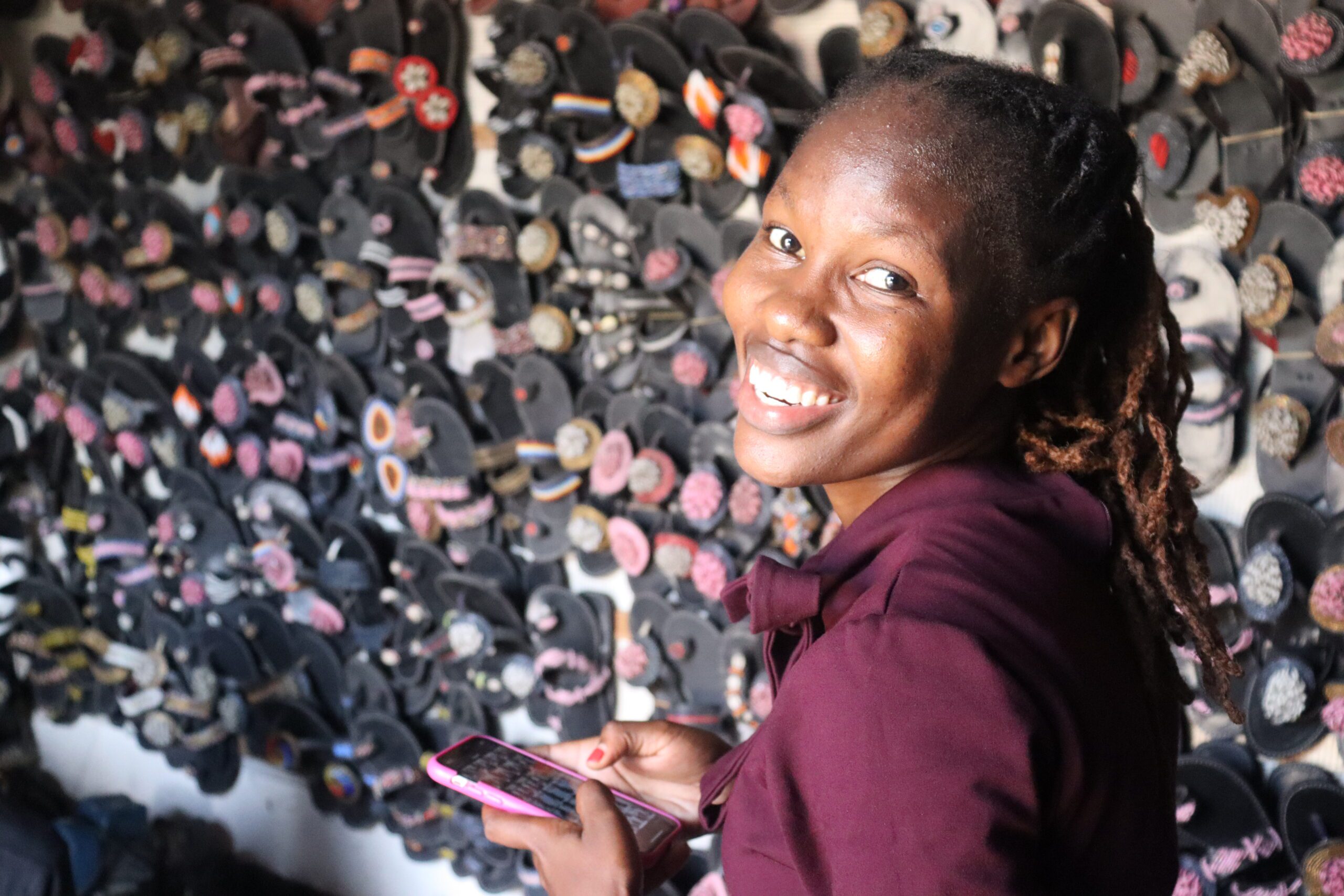Story
Social Entrepreneurship Program Impact

From ‘Just Ideas’ to Booming Social Enterprises: Creating Opportunities Under the Social Entrepreneurship Program in Kenya
Amidst the world’s most pressing challenges, today, exists massive opportunities that youth can tap into and be able to transform their livelihoods and communities. Even though a majority of youth have ideas and the passion to solve these challenges, they lack the knowledge, skills and financial resources to do so.
DOT Kenya on supporting social entrepreneurs
Digital Opportunity Trust (DOT) Kenya in partnership with Global Affairs Canada, under the Daring to Shift (D2S) project, has empowered visionary youth with the resources, knowledge, and networks needed to establish sustainable social enterprises. The social entrepreneurship program targeted Kenyan youth who have a passion for entrepreneurship. The selected social entrepreneurs went through rigorous learning programs, coaching sessions and strategic linkages to incubators, accelerators, financiers, and impact investors in order to start sustainable social enterprises. These social purpose businesses enabled young women and men to earn a sustainable livelihood, and also generate community-level social and economic impact.
A total of 17 young women and men have been able to develop their ideas and launch social impact businesses, a transformative process that has unlocked a myriad of opportunities for them and their communities. Take a deep dive into how some of our social innovators benefited from the program.
Equipped youth with entrepreneurship skills
Learning was at the core of the Social Entrepreneurship program, where youth gained entrepreneurship skills such as social media marketing, financial literacy, and communication and develop competencies in competencies in gender equality, technology, and social innovation.. Winnie Barawa, the founder of Queen Dada Daycare —which aims to bridge the social economic gender gaps in the community by providing 24 hour daycare services to working mothers who have children aged 3 months to 8 years, describes how the program helped her learn and grow her business.
I learnt entrepreneurship skills in areas of business planning, finance management, competitive landscape and launching and scaling my business. The skills acquired have helped me manage Queen Dada daycare better with notable improvement in customer relations, social media marketing and establishing a competitive advantage over my competitors.
Another social entrepreneur, Lavender Odeny, the founder of Mashlav Foods based in Coastal Kenya, also highlighted her learning journey:
I learned and perfected my art of pitching. During the training I was taken on a one -to -one coaching on pitching by experts. They gave useful insights and good practices on pitching. The fact that the judges asked instrumental questions related to my business helped hugely in refining my idea and gave me confidence to pitch better.
Elizabeth Ochieng, the founder of Ento Farms, which seeks to solve waste management challenges in Kayole and also produce protein for animal feed formulation also acquired skills and knowledge that has helped her to boost her social enterprise.
The skills that I gained from the program have really come in handy in running the business. For instance, right now I am able to track my cash flow. I am also able to utilise social media platforms to market my business.
Provided financial support
Financial resources are pivotal to establishing a social enterprise. After going through rigorous coaching sessions, the young social innovators were tasked with pitching their ideas to a panel of judges. Those who were successful were awarded grants, and Elizabeth Ochieng is one of them.
I got a seed grant of 70,000 Kenyan Shillings, which enabled me to launch my validation trials, she said.
At the time of the interview with us, she had upcycled 30 tonnes of organic waste, produced 300 kilograms of animal feed and created employment opportunities for about five people.
Boosted businesses and transformed communities
One of our social innovators, Rosaly Akinyi, is a force to be reckoned with. When she started ‘Roak Swahili Wear,’ a fashion brand that empowers women with bead-work skills, it was merely for earning her income. The program challenged her mindset, expanded her skill-set and knowledge base. Rosaly is currently pursuing a bigger vision —to expand her product line and create employment opportunities for more youth and women. The skills she acquired during the program also boosted her profits.
With the Kes 100,000 grant that I won from DOT Kenya, I managed to buy sewing and grinding machines that have increased our rate of production by 20%, she said.
Both Elizabeth, Rosaly, Winnie, Lavender and thirteen other social entrepreneurs were supported to not only launch but also grow their enterprises while leveraging digital skills. Their stories are solid evidence that if youth are supported, particularly young women, they have the potential to contribute towards Kenya’s economic development and create positive and sustainable change in the society.
*D2S is a transformative multinational initiative that was implemented by Digital Opportunity Trust, with support from Global Affairs Canada, from 2019 to 2024 in various communities across Africa and the Middle East. This innovative initiative made it possible to empower 30 social innovators, with a particular focus on young women. Over the project’s duration, it reached 13,877 community beneficiaries, with 60% of them being women.
The project focused on equipping youth with essential skills such as digital literacy, workforce readiness, entrepreneurship, and social innovation. This holistic approach aimed to catalyse the creation of digital jobs, businesses, and local enterprises that address community-specific needs and value chains. D2S is rooted in the belief that young people, as co-designers of their own futures, play a pivotal role in driving inclusive growth, fostering resilience, and enabling community recovery. By bridging the digital divide, transforming ecosystems, and promoting social and economic development, D2S represented a beacon of positive change across the regions it serves especially during and after the COVID-19 Pandemic.
Are you our next Community Leader, Digital Champion, or Social Innovator? Learn more about how to join #DOTYouth
Join #DOTYouthShare this Story
More STORIES
Read more inspiring stories like Social Entrepreneurship Program Impact.